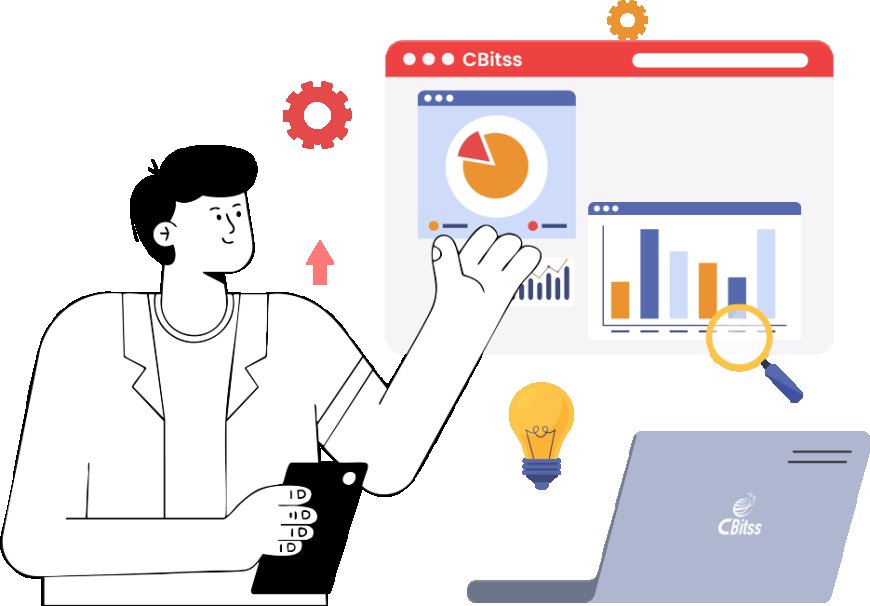How Data Analysts Help Businesses Make Smarter Decisions?
Learn how data analysts help businesses make smarter decisions by transforming raw data into actionable insights for growth and efficiency.

Introduction
In the dynamic business environment today, proper decisions to be taken at the appropriate time could be the only difference between success and failure. But, companies can be overwhelmed with information; what will make them act and what will be left aside? Data analysts enter the stage there. They assist in turning the intimidating figures into effective business advice, such that the companies differentiate between smart and evidence-based business decisions. How data analysts do that, in simple words, is as follows
What Does a Data Analyst Actually Do?
A data analyst is a person who collects, combines, and analyses data to discover valuable patterns, trends and information. But consider a business to be a car and a data analyst would be the GPS. They are not driving the car but rather they are assisting it in going the right direction.
An example would be a retail company gathering information of which items are selling best, at what time of the day people shop and what is being said by customers using the internet. The data analyst then combines all of that data, and makes it into a story that a business can actually do something about - perhaps a better way of stocking more of a particular item that has been selling really well, or to better treat the customers.
Problem: Businesses Are Often Drowning in Data
The majority of contemporary businesses gather huge amounts of data on a daily basis - sales and web clicks, customer reviews, employee performance, etc. Though power has data, it is not sufficient.
The real challenge? Knowing what to do with it.
Without someone to make sense of all the numbers, businesses can waste time, miss trends, or make poor choices. This is especially risky in industries like finance, healthcare, or e-commerce, where one wrong move can cost thousands or even millions.
Solution: Turning Data Into Insights
The services offered by data analysts include three things that are very helpful to business:
1. Identifying Trends
Suppose a food delivery app finds that there are decreased weekend orders in a particular city. A data analyst may analyze the trend and find out that on some occasions, persons go out to restaurants instead. Knowing that information, the business will be able to initiate discounts on specific products or change the advertising tactics.
2. Making Predictions
Analysts can provide an educated guess with the use of past data of any given subject. A garment brand can pose a question, which goods will sell well in the next season? To be able to answer that, a data analyst can view the sales of last year, current fashion trends, and customer reviews.
3. Improving Efficiency
It is not always an issue that it is external to a business rather it is internal. One may ask a question like what is causing the hold up in deliveries? A data analyst may monitor the position at which they are experiencing delays and may realize the existence of one warehouse with a shortage of staff. Corrections on that problem would save money and maintain the happiness of the customers.
Real-Life Example: How One Supermarket Chain Increased Sales
One of the supermarket chains realized that there was frequent purchase of the bread yet not the butter. Not guessing why, they employed a data analyst who delved in data on shopping.
The analyst has found out that butter was positioned in a corner where there was less traffic in the store, and the bread was positioned in the front. Once butter was brought near to the bread, the store experienced increased sales of butter whereby the sales increased by 20 percent in 2 weeks.
This was the easiest change based on facts and increased customer experience and profits.
Antithesis: Is Gut Instinct Still Valuable?
Other business executives believe in their instincts rather than statistics. Aren t experiences worth something after all?
Yes, intuition may come in handy particularly among the experienced professionals. However, instinct is not always a safe thing to rely on. Personal feelings and/or prejudice or even old habits may blur judgment.
The superior option? Mix the data with experience.
Remember that data is the flashlight to refine the instinct. It is human judgement with hard facts that often makes the best decisions.
Why Every Business Needs Data Analysts?
Data analysis can be of great use even to a small tech company. Even small stations - local cafes, internet shops or service providers - can use data to find answers to questions such as:
-
What are the most profitable products?
-
Which marketing will give us the most customers?
-
How are we bleeding time or money?
Through such questions that are answered using actual evidence, the data analysts are assisting in eliminating conjecturing and enhancing decision making at all levels.
Common Challenges Businesses Face Without Data Analysts
Missing Revenues: Wasting money on an advertisement or stock, which does not yield returns.
As a Source of Missed Opportunities: Not responding to new customer trends, or demands.
Incomparable Results: Transforming things without being aware of what is actually effective.
These issues can be avoided, though it is important to note that they can be avoided only when a business understands how to treat data and use it correctly.
Final Thoughts
Data analysts are not magicians, although they perform a magic act: they trot information into action. When the world is changing rapidly, companies can no longer rely on gut-feeling or blind faith. They require illumination and data analysts do exactly that. It could be predicting customer behavior, identifying issues before they become really big, or simply improving performance; in any case, Data analyst course in Chandigarh play a big role in making businesses smarter in their decision making-not based on speculation, but reality.










































